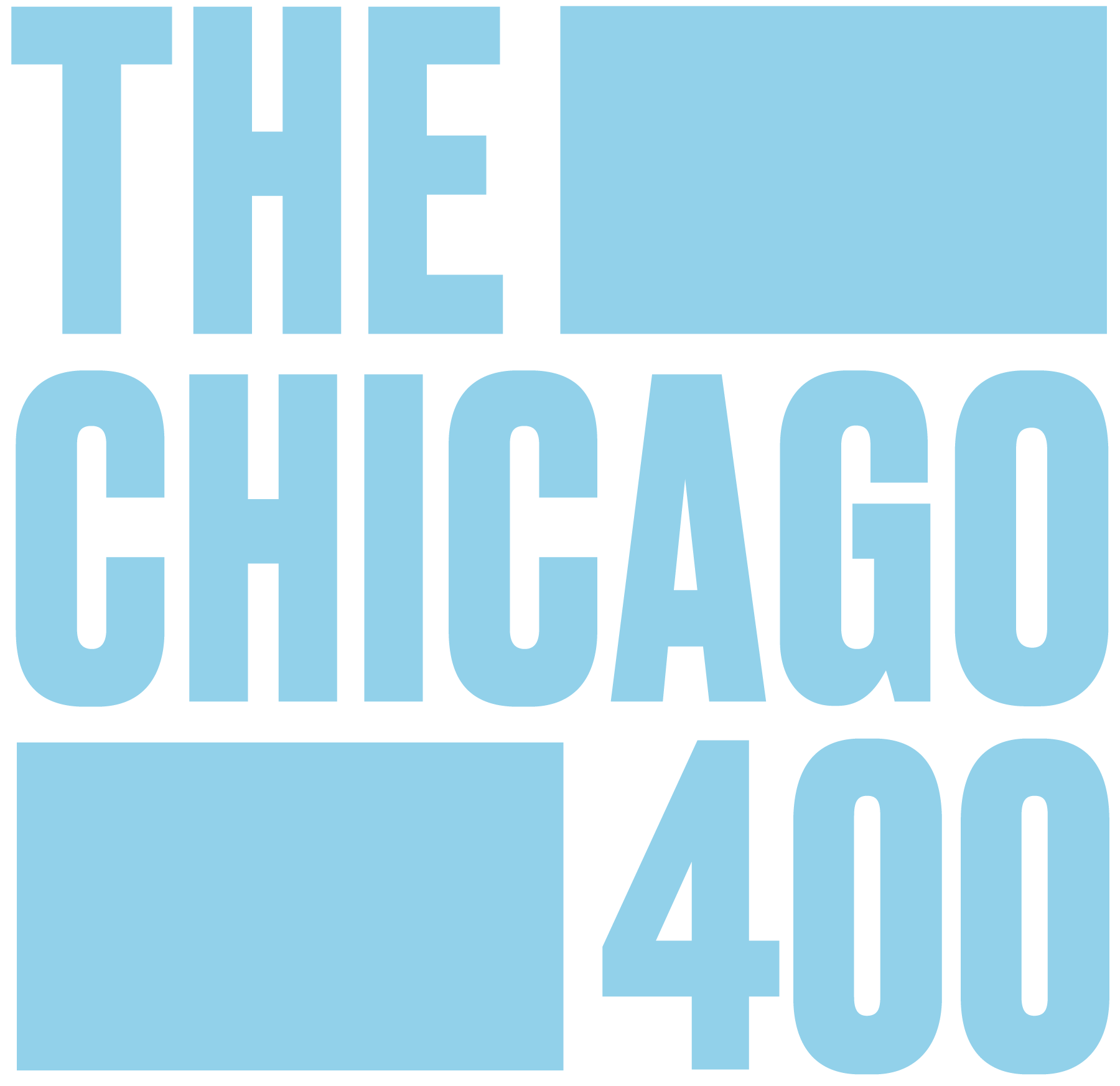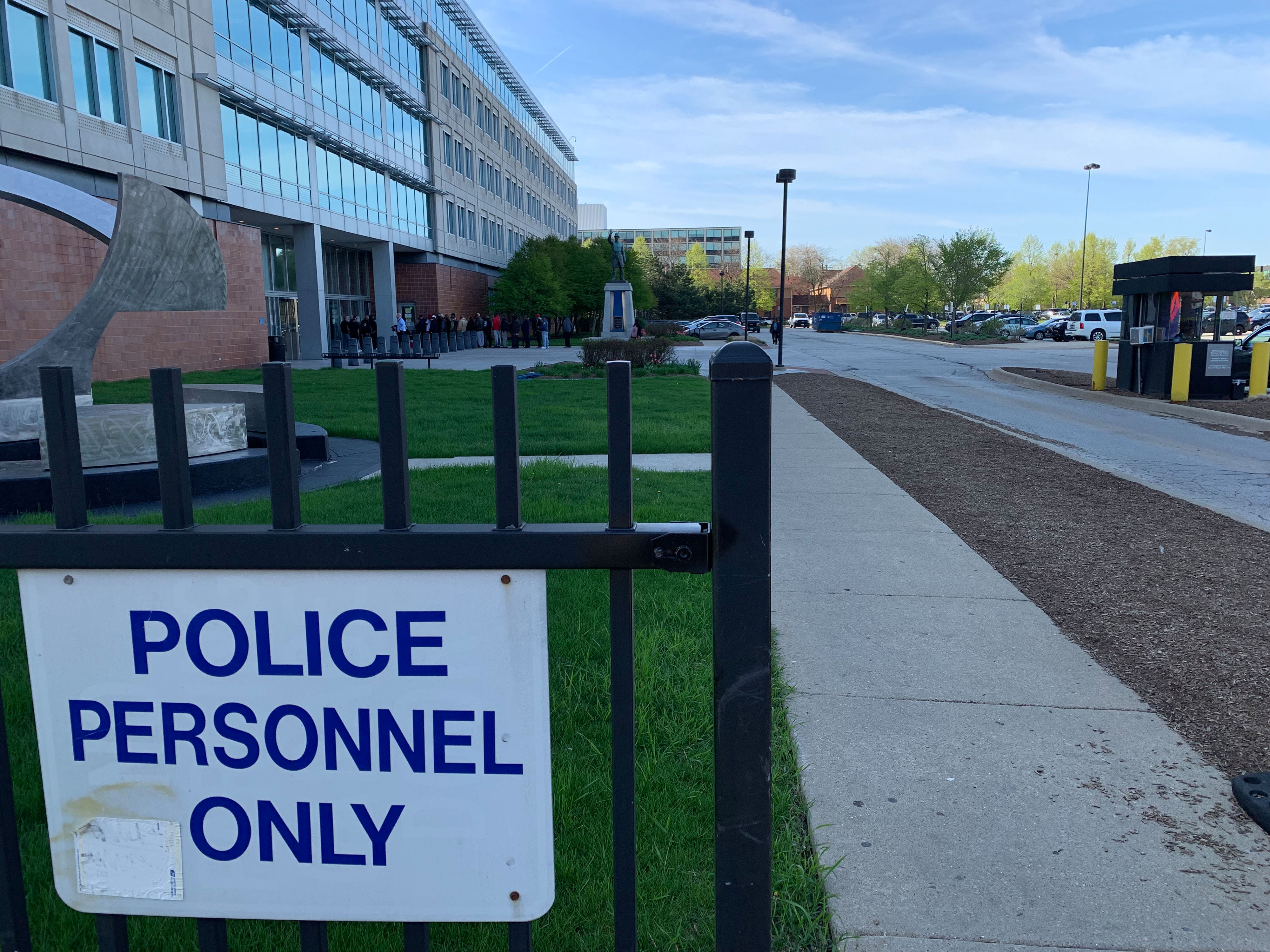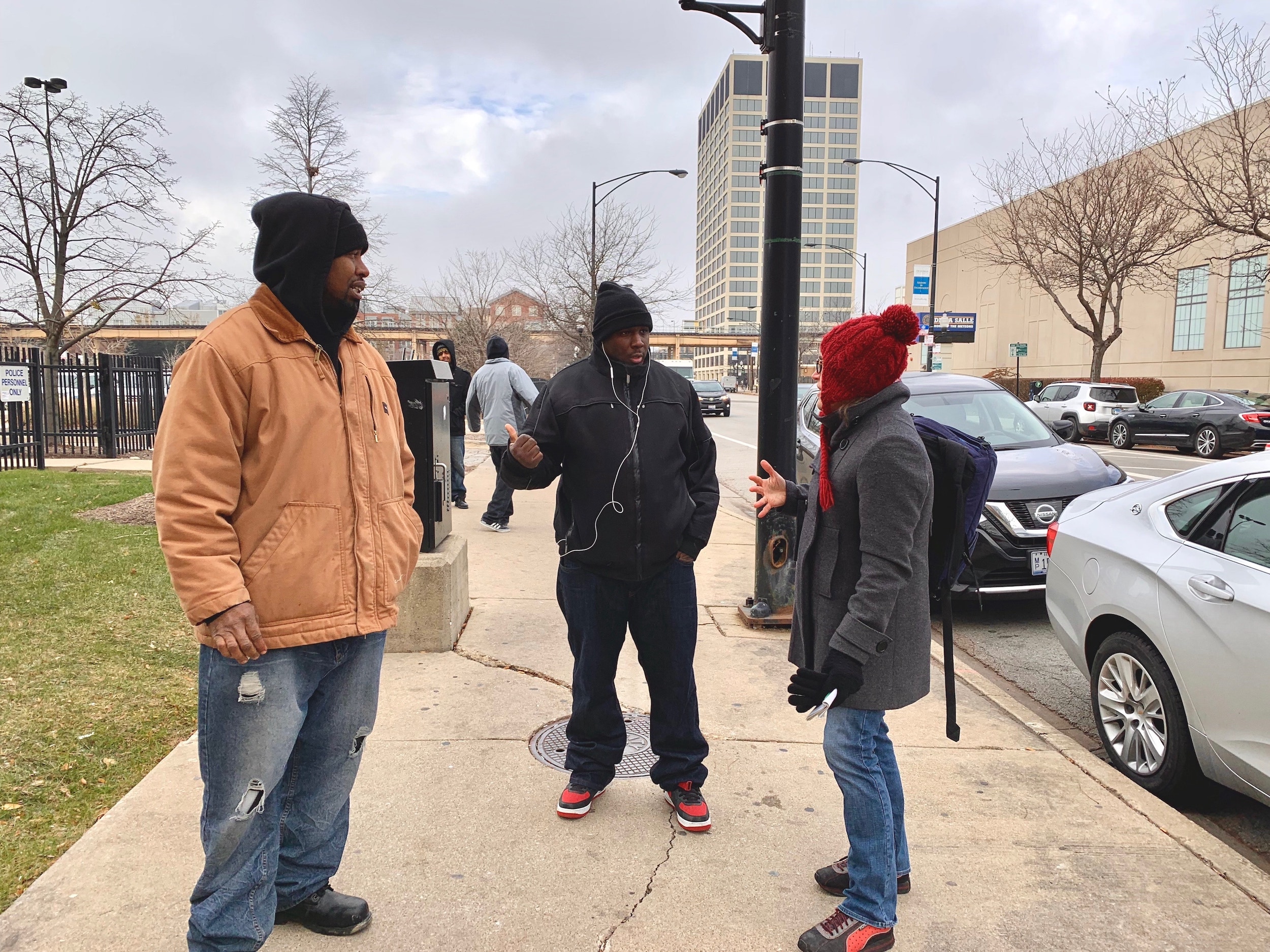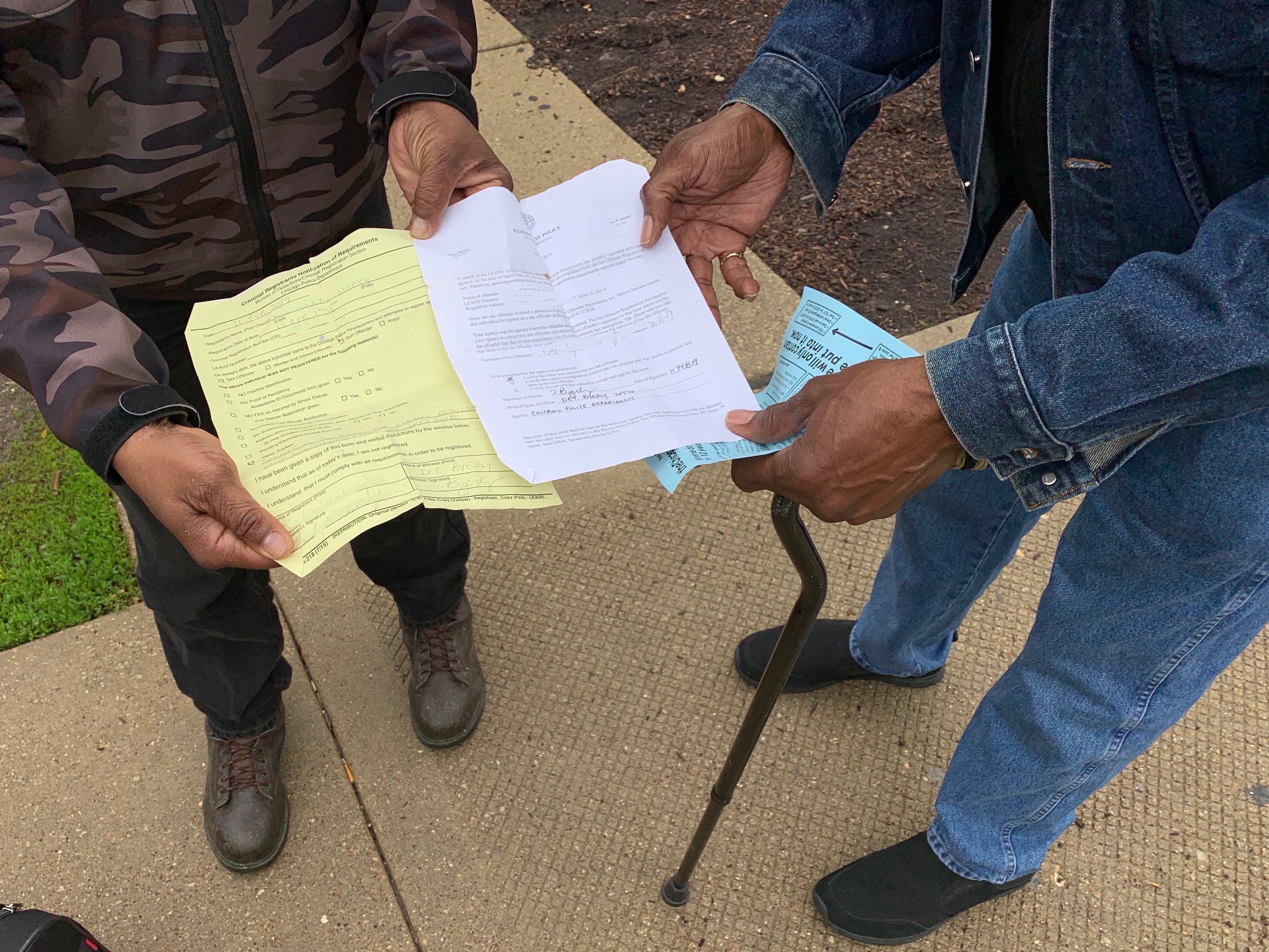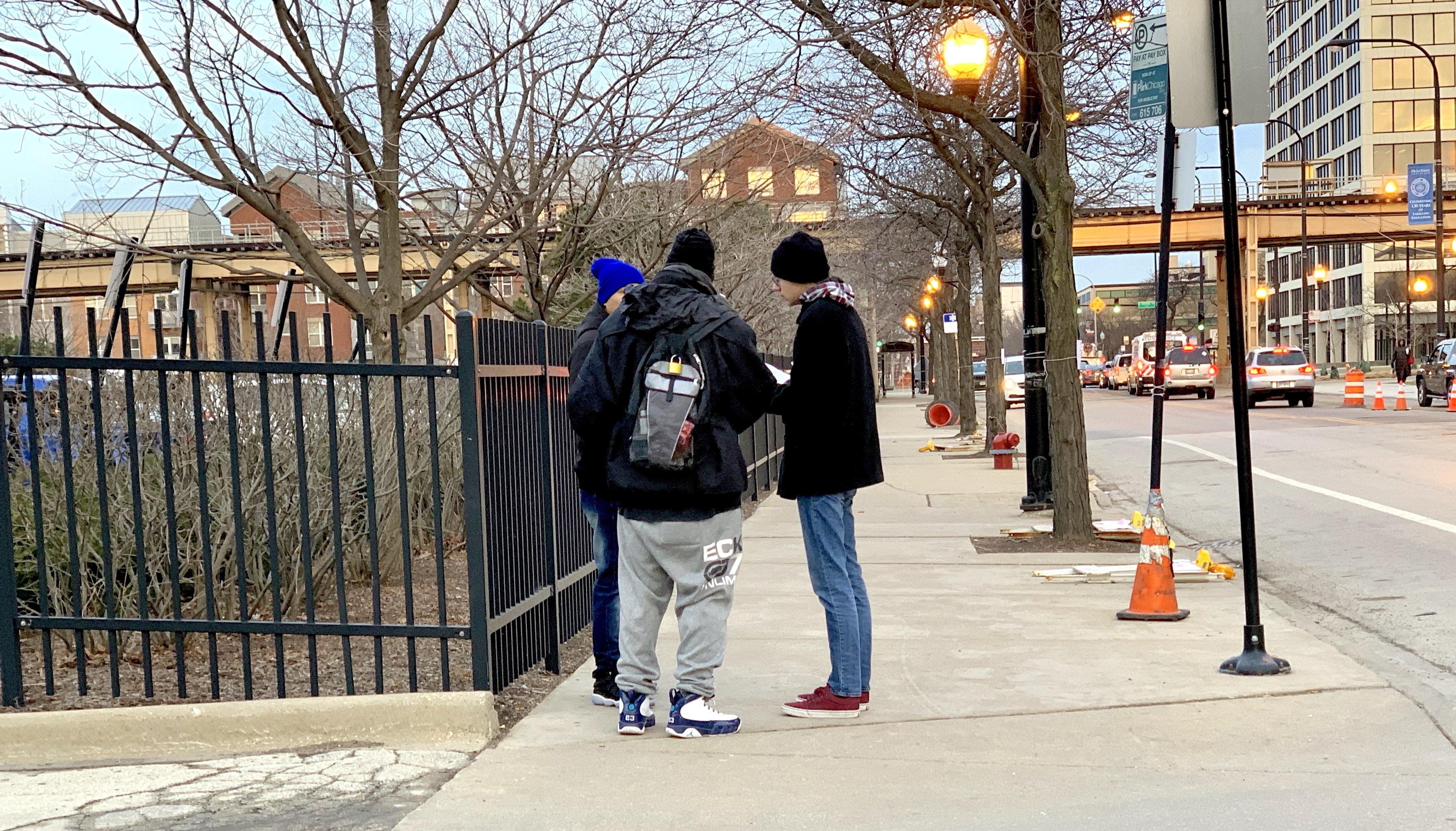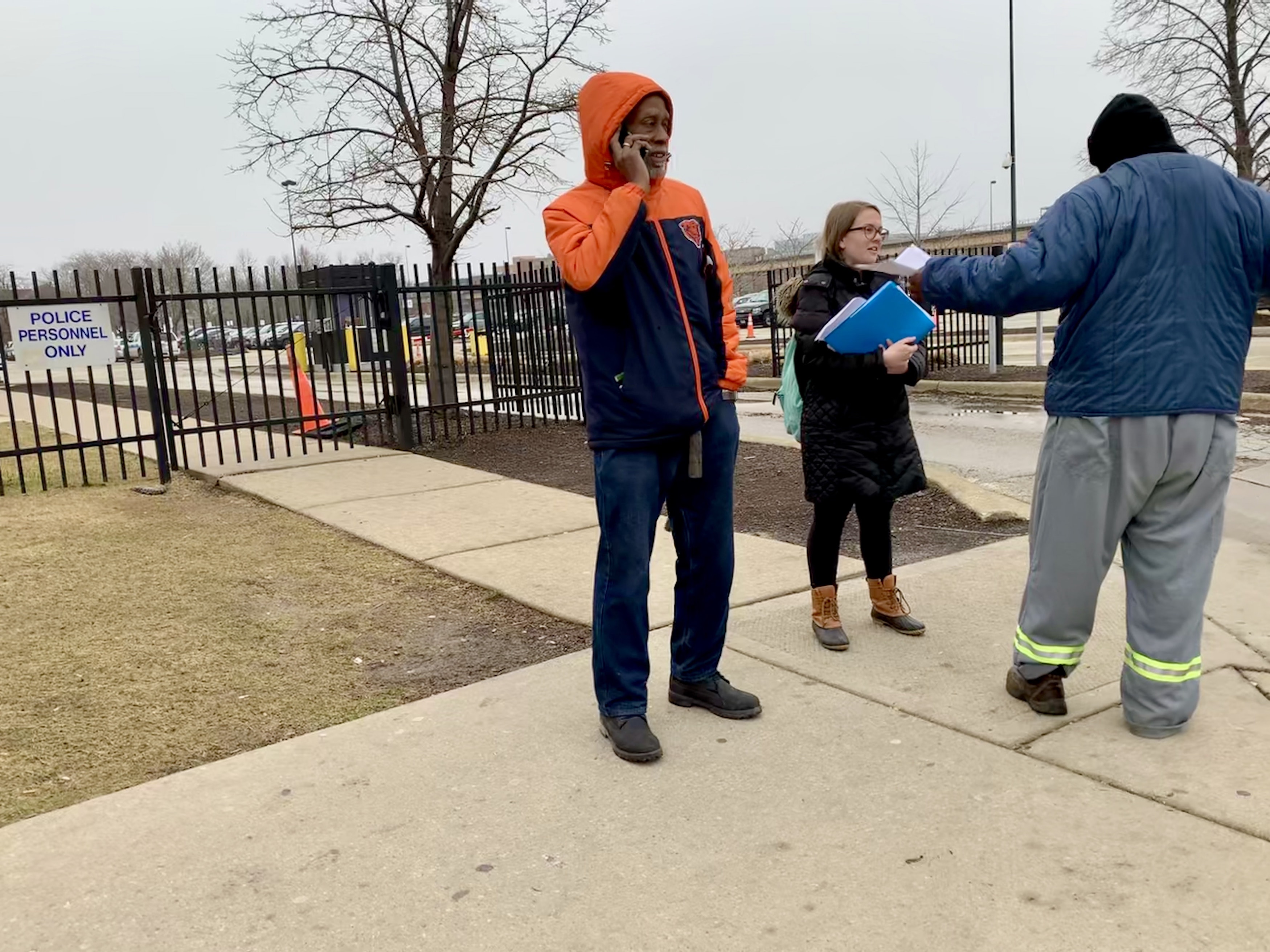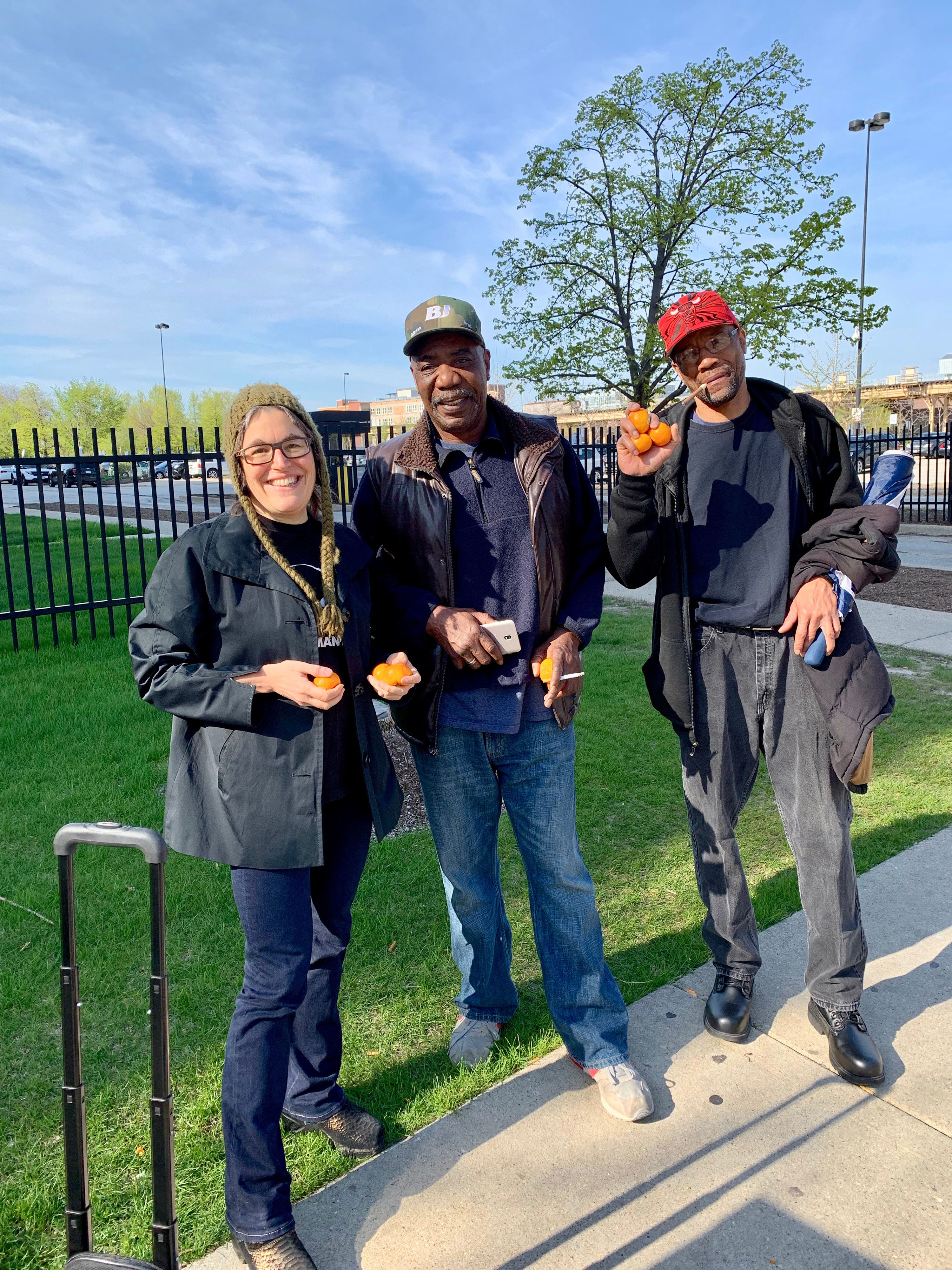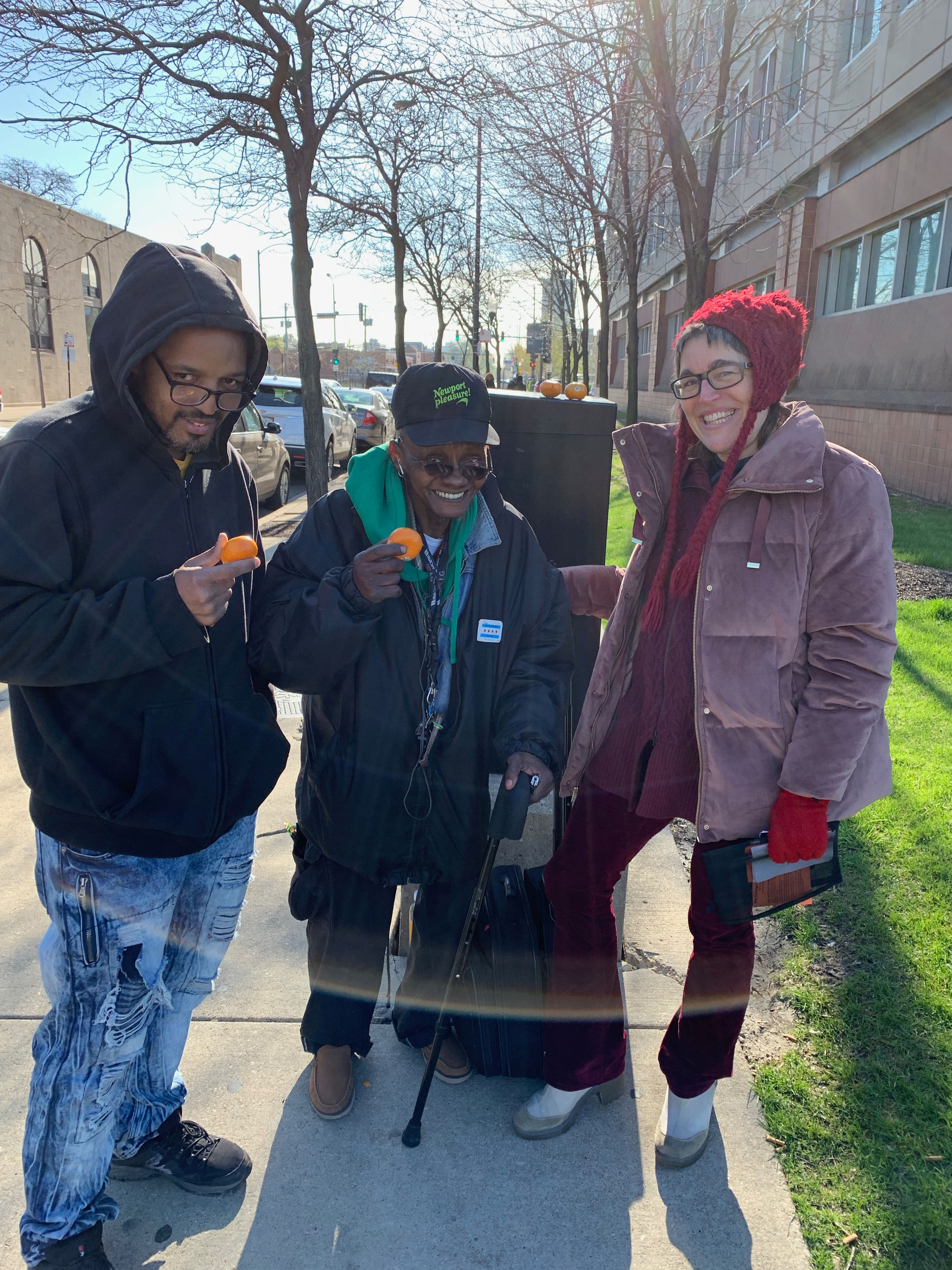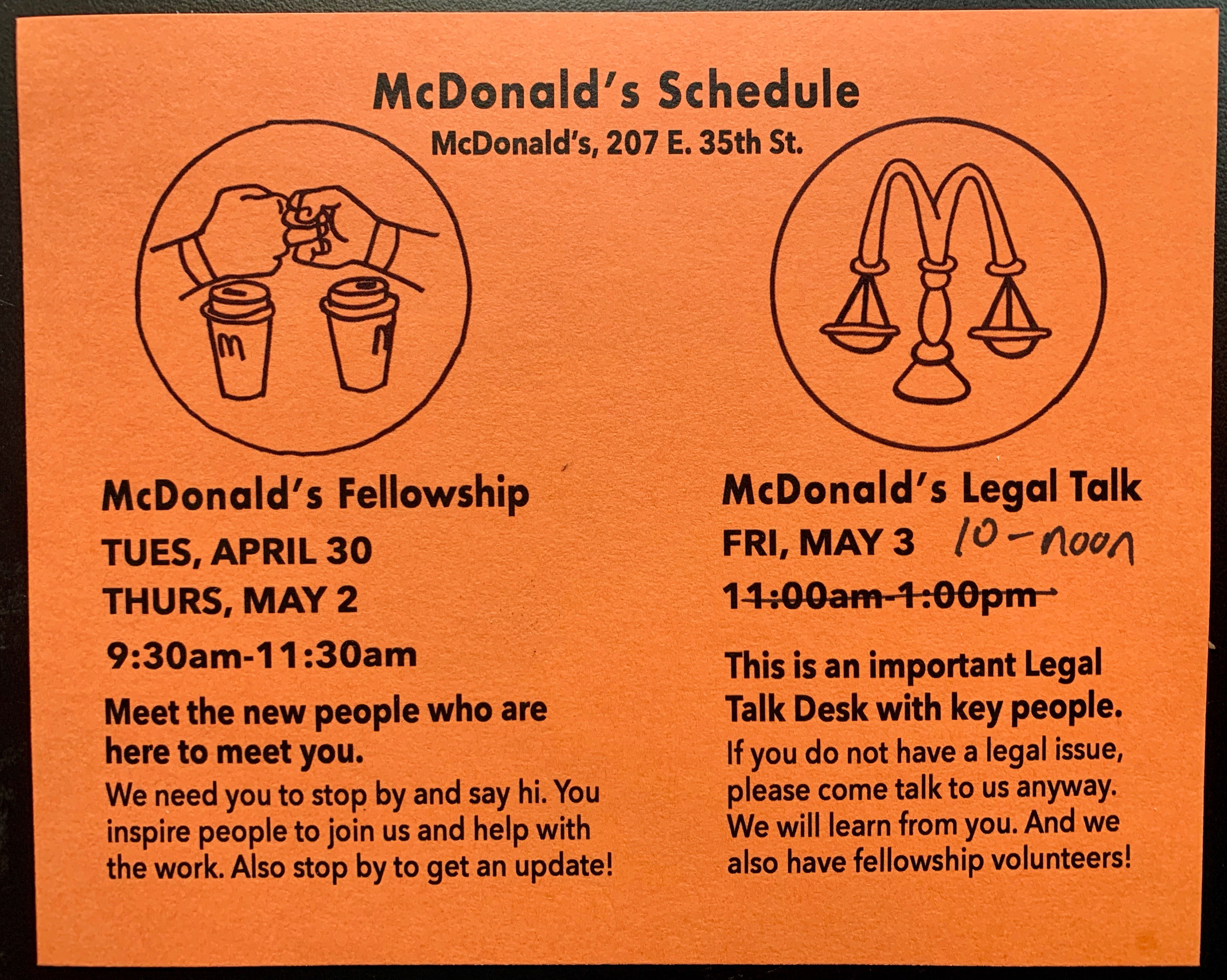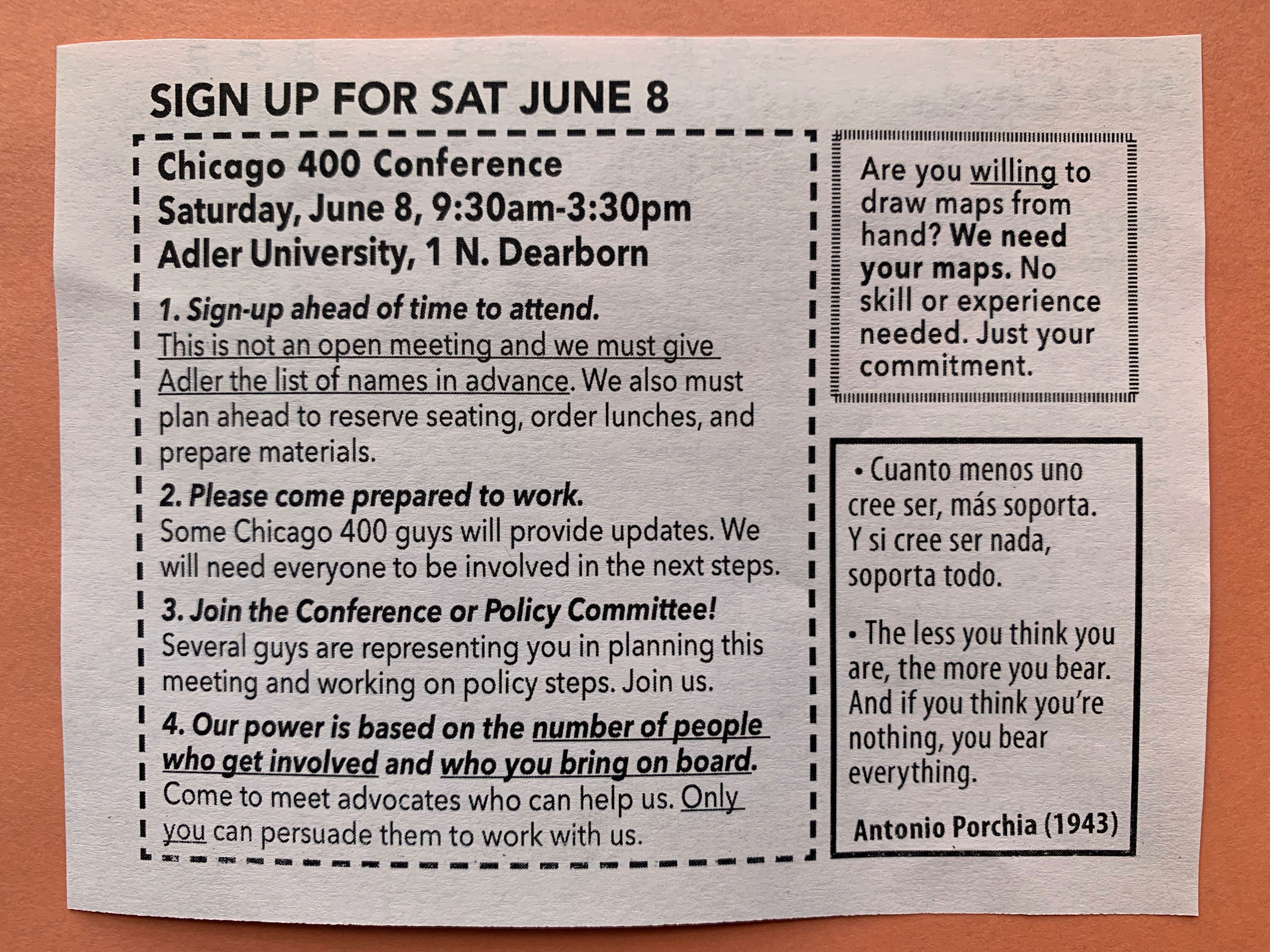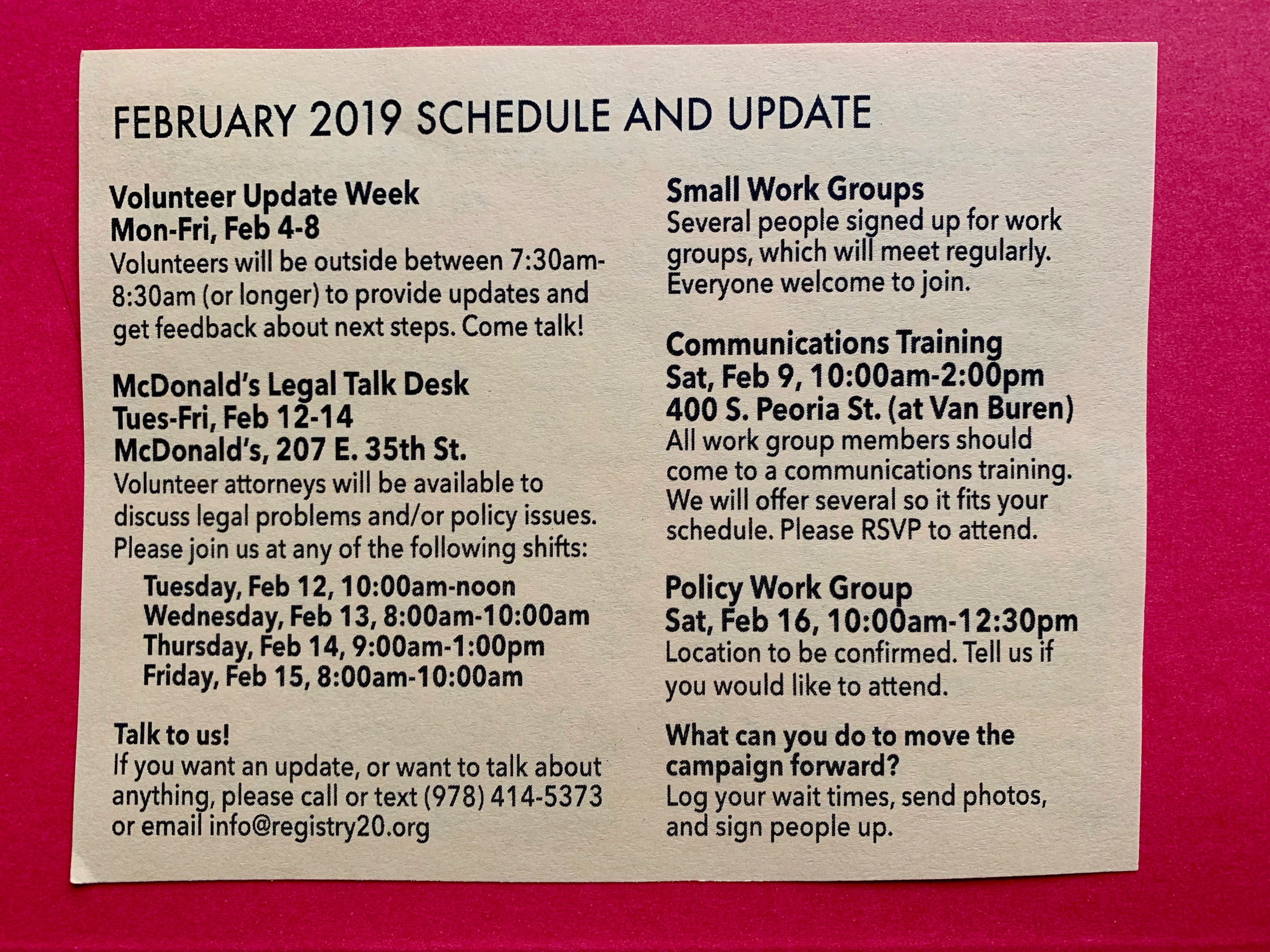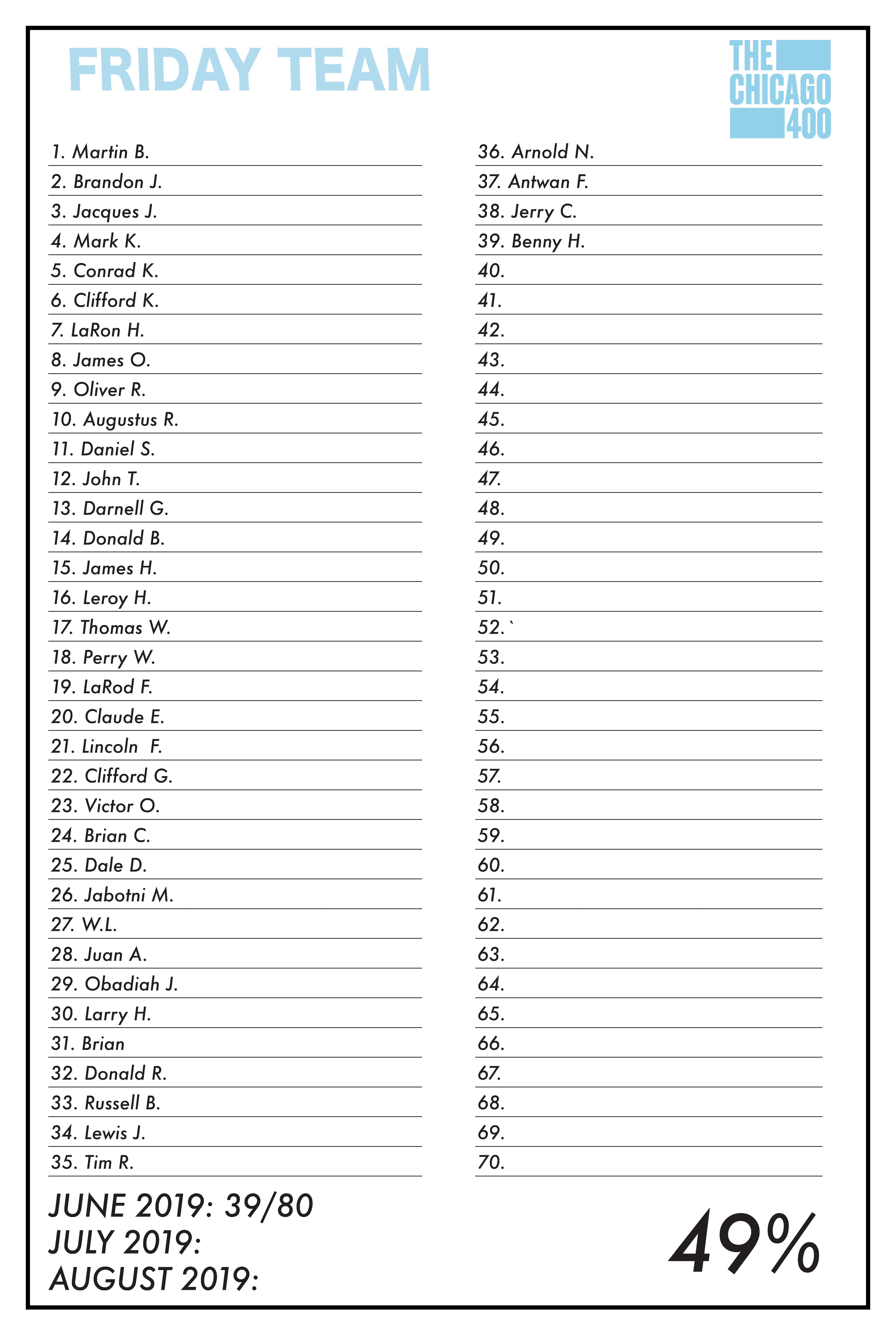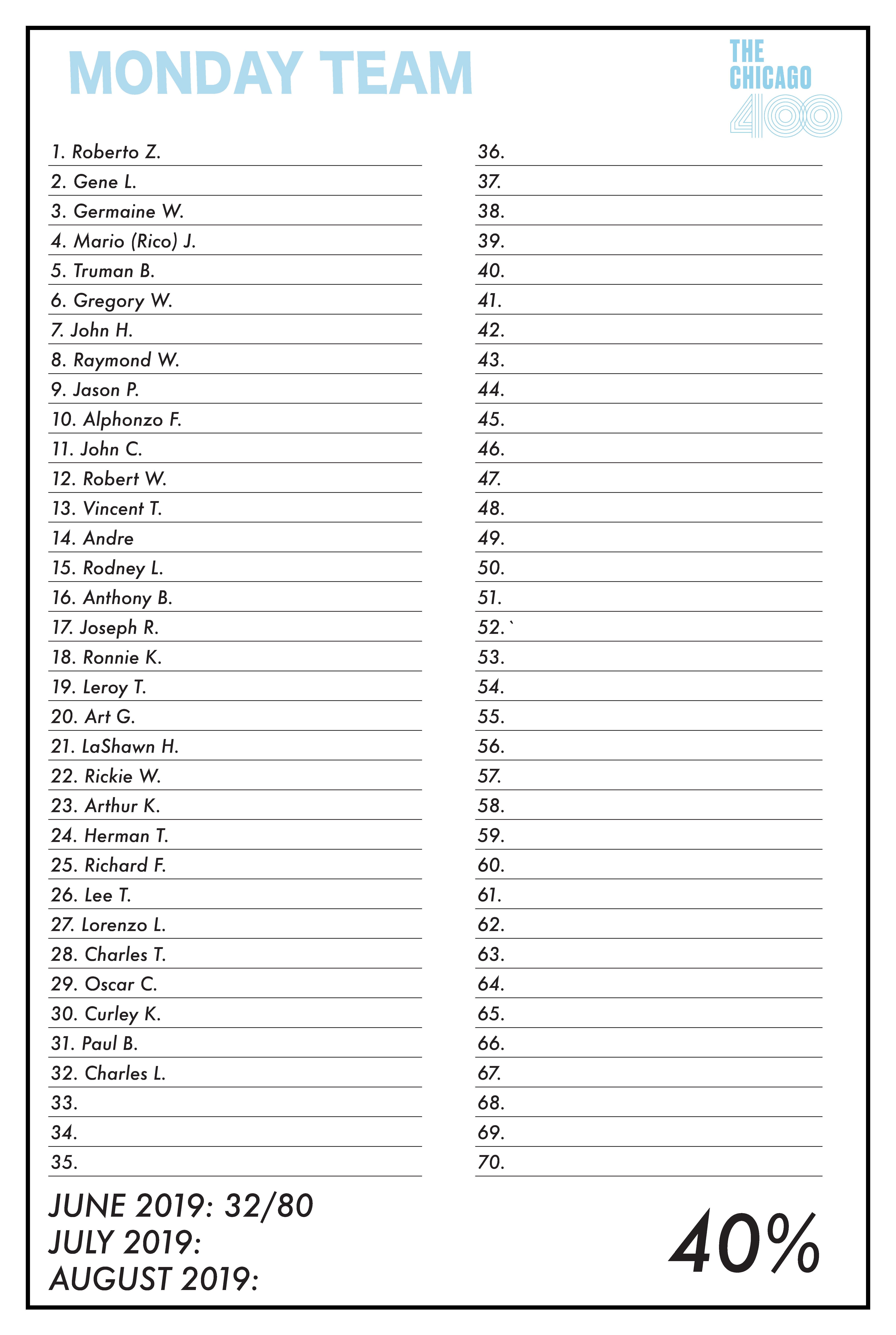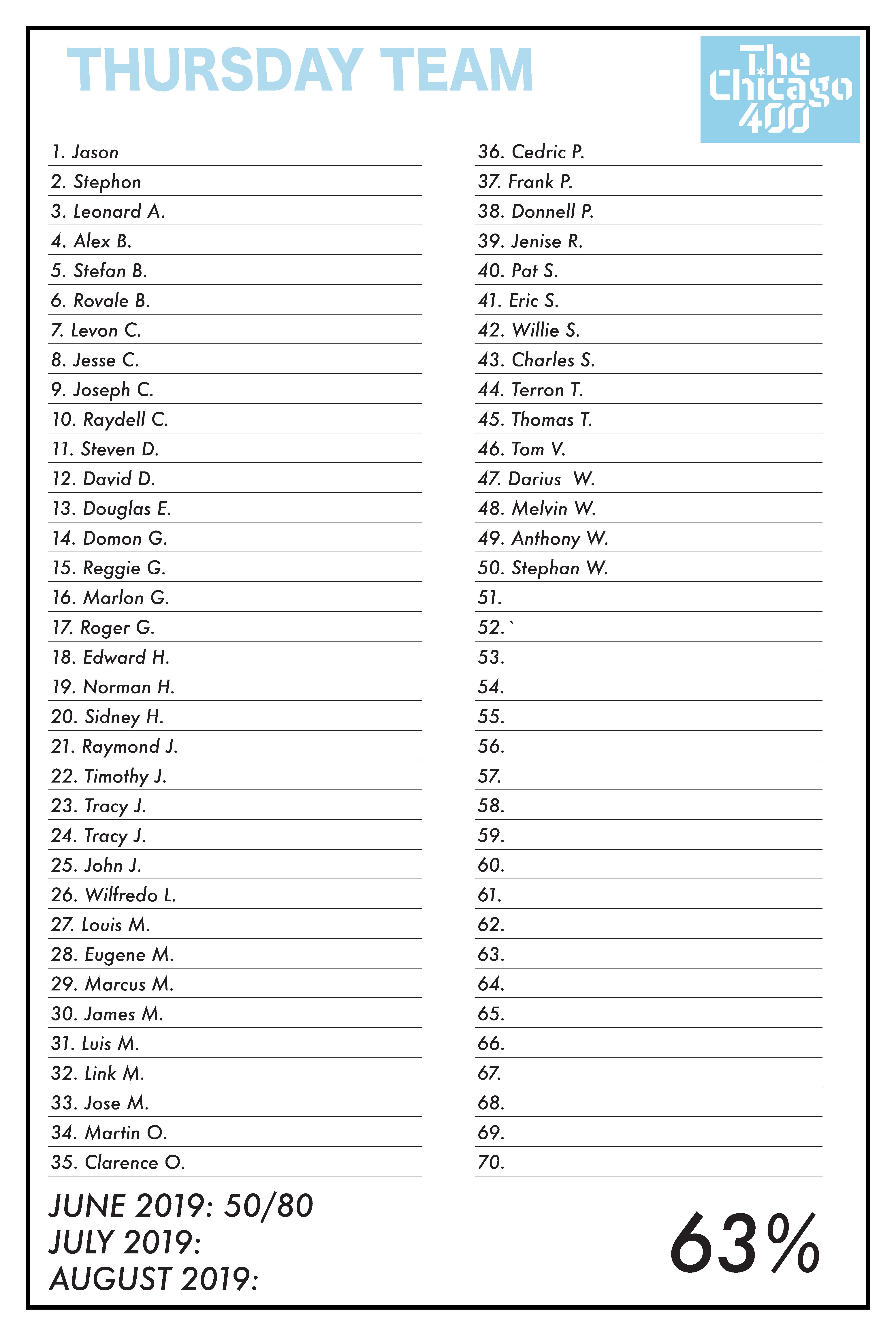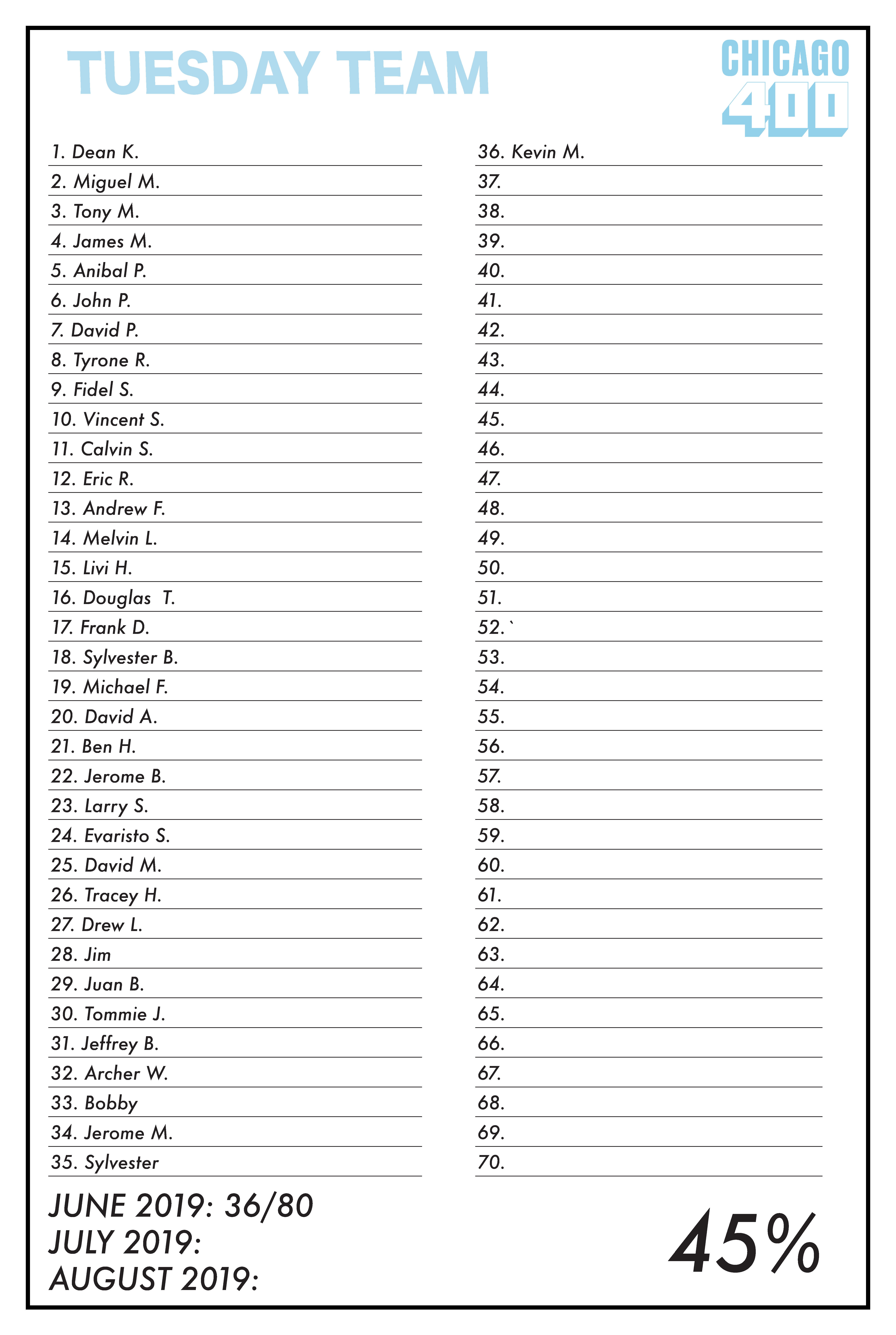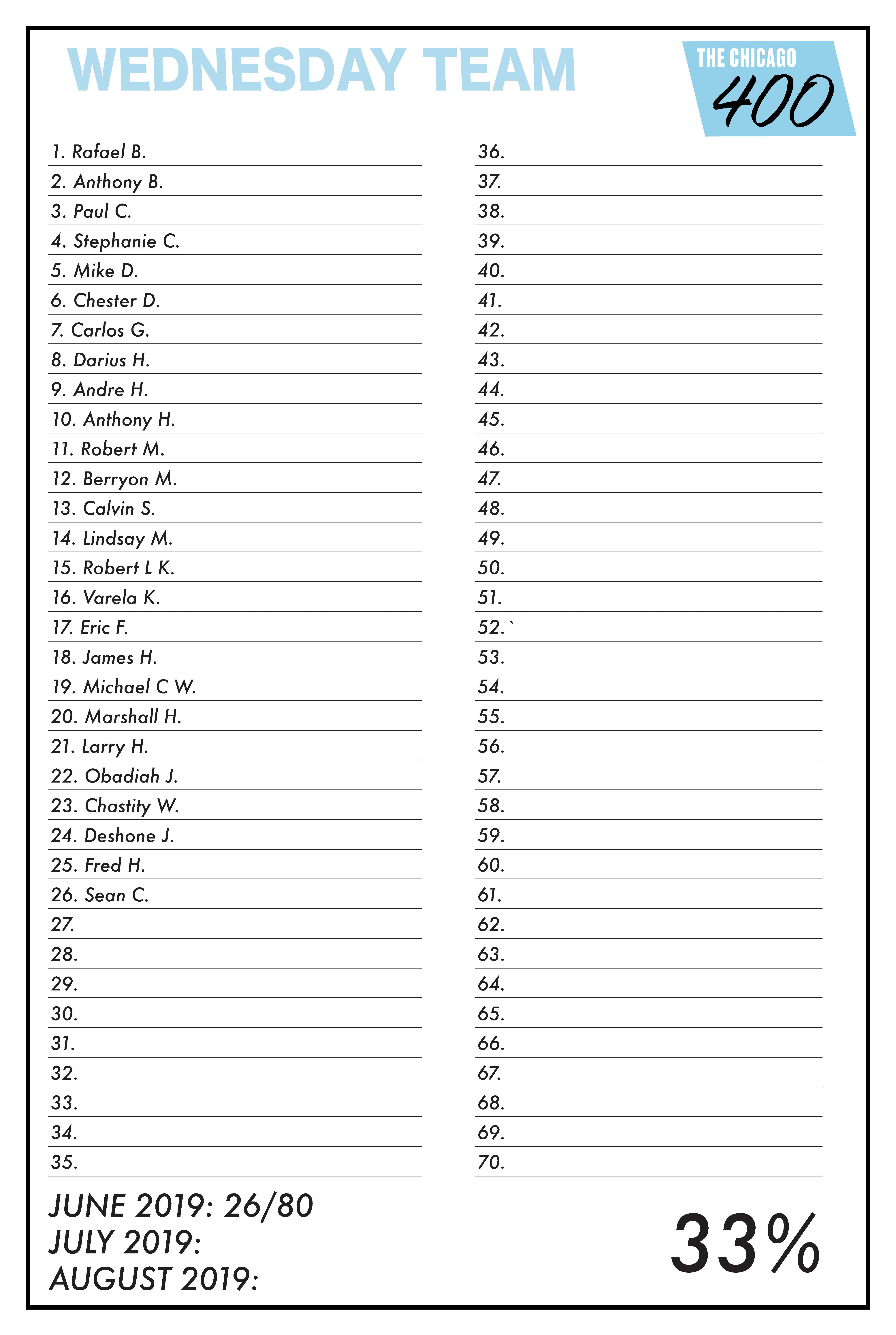Organizing Model and Campaign Structure
Campaign model for direct action organizing to change policies and shift the narrative on these damaging policies
- Chicago 400 Campaign
-
Maps
-
McDonald's Legal Talk Desk and Fellowship Programming
-
Organizing Model and Campaign Structure
-
Chicago 400 Conferences
-
Drawing, Sculpture, Sound, Performance, and Radical Social Practice
-
Why This Issue
Communication and research
The Chicago 400 have to camp out in cars or nearby spots to try to get a low number to register so they can be the first to leave, so they can go to work, take kids to school, etc. Volunteers and advocates meet people as they register, by standing on the sidewalk at the north entrance to Chicago Police Headquarters and introducing themselves to people as they enter the police station. Together through months of sustained dialogue and research, we have together uncovered the exceptional legal and logistical problems embedded in state laws and police practices affecting people experiencing homelessless who are required to register weekly.
"We Can't Go Outside and You Can't Come Inside "
Because police will not allow non-registrants to go in the police station, the volunteers and family members who are not listed on the registry have to stay on the sidewalk. So, the Chicago 400 leaders come outside to talk, get flyers from and update volunteers, and then hand out materials and update people inside the bull pen. Incidentally, the entire block around the police station is in a "public exclusion zone" so most of the Chicago 400 are not legally allowed to stand there, and police often tell everyone to move. For longer conversations, we all meet at the McDonald’s located near the police station. Campaign updates and schedule meetings are also provided via text messages and phone calls, although not everyone has a phone. See a flyer here, which of course is cut into quarters for handing out.
Organizing By The Day of The Week
Each day of the week has a different leadership structure and methodology for keeping the pre-8:00am list. A "listkeeper" starts to form a list at 8:00pm or 9:00pm the night before, which gets translated to police when they line people up at 8:00am the next day. Sometimes there are disputes because of cuts in line or disagreements about who arrived first or how the line was handled. State laws and police procedures put people in an impossible and stressful situation, which can cause hostility between people who should be supporting each other.
The goal of this campaign—and all community organizing—is for all of us to work together to build power rather than be pitted against each other to lose power. In this spirit, the Chicago 400 campaign has created an organizing structure based on each day of the week, tapping into the existing power structure and building a shared sense of community. Each day of the week, leaders recruit from inside the bull pen and send people outside to talk to volunteers. People protect and help each other. In fact, if someone has just gotten out of prison and can't register in three days because they don't have an ID, it is the people who register who help out and explain to the person what they to do.
